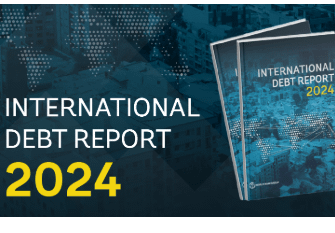In 2023, low- and middle-income countries (LMICs) faced unprecedented external debt levels, total reaching US$8.8 trillion. Servicing this debt became more expensive than ever. The 2024 International Debt Report (IDR) marks these trends and offers vital information about debt flows and the economic outlook for 2024.
Record Debt Levels
The external debt of LMICs hit an all-time high in 2023, the increase stems from heavy borrowing during the COVID-19 pandemic. Many countries sought funds to improve healthcare and provide economic relief. The trend of rising debt continued into 2023 as countries recovered from the pandemic.
Role of Multilateral Lenders
During the pandemic, multilateral lenders became crucial. Institutions like the International Monetary Fund and World Bank provided essential funding. They filled the gap left by private lenders, who were less active during this period. Since 2019, LMICs have shifted towards borrowing from these official sources.
Private borrowing fell sharply during the pandemic. Many countries focused on loans from official creditors with lower interest rates. However, in 2023, borrowing from private creditors increased by US$127 billion. This indicates a renewed interest in lending to LMICs.
Impact of High-Interest Rates
Rising inflation and high-interest rates have made debt management challenging. Central banks in wealthier countries set high rates to control inflation. This has increased the cost of servicing long-term debt for LMICs. As a result, the share of debt service in national income has surged.
Despite signs of recovery, LMICs still face risks. Conflicts, trade issues, and weak growth, particularly in China, present challenges. High inflation continues to strain resources. These factors complicate debt management and necessitate close monitoring of debt levels.
GKToday Facts for Exams:
- IDR The International Debt Report (IDR) is an annual World Bank publication. It tracks global debt trends and has influenced development finance policies for over 50 years.
- LMICs Low- and middle-income countries (LMICs) face external debt challenges. In 2023, their debt reached US$8.8 trillion, largely due to pandemic-related borrowing for economic recovery.
- Multilateral Lenders Multilateral lenders, like the IMF and World Bank, provided essential funding during the pandemic. They filled the void left by private lenders, supporting LMICs in crisis.
- Debt Servicing Debt servicing costs for LMICs have surged due to rising interest rates. This increased financial strain limits investments in healthcare, education, and infrastructure within these countries.

Leave a Reply